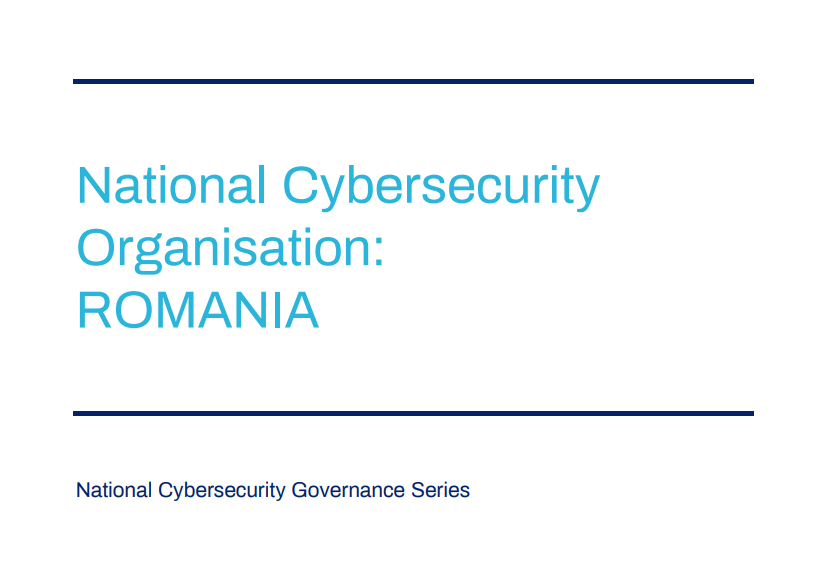NATO Cooperative Cyber Defence Centre of Excellence (CCDCOE) has published a study on national cybersecurity organisation in Romania that provides a comprehensive overview of the current cybersecurity landscape and, in particular, provides the legislative and structural framework summary.
The Romanian country report outlines the developments in division of cybersecurity roles and responsibilities between agencies in Romania, describing their mandate, tasks, and competences as well as coordination between them. In more detail, it covers the mandates of political and strategic management; operational cybersecurity capabilities and cyber incident management; military cyber defence; and cyber aspects of crisis prevention and management. The study offers an introduction to the broader digital ecosystem of the country and outlines national cybersecurity strategy objectives providing the context for the organisational approach.
The CCDCOE report “National Cybersecurity Organisation: Romania”, by experts from the Romanian Intelligence Service and the Ministry of National Defence, is part of the National Cybersecurity Governance Series published by the NATO CCDCOE. The aim of the series is to improve awareness of cybersecurity management in the varied national settings, support nations enhancing their own cybersecurity governance, encourage the spread of best practices, and contribute to the development of interagency and international cooperation.
Full report is available on CCDCOE´s homepage´s Library section. Please note that this report is a product of the NATO CCDCOE. It does not necessarily reflect the policy or the opinion of the Centre, its Member Nations or NATO.
The CCDCOE is a NATO-accredited cyber defence hub focusing on research, training and exercises. It represents a community of 29 nations providing a 360-degree look at cyber defence, with expertise in the areas of technology, strategy, operations and law. The NATO-accredited centres of excellence are not part of the NATO Command Structure.
The Centre is staffed and financed by its member nations, currently Austria, Belgium, Bulgaria, Croatia, Czechia, Denmark, Estonia, Finland, France, Germany, Greece, Hungary, Italy, Latvia, Lithuania, Montenegro, the Netherlands, Norway, Poland, Portugal, Romania, Slovakia, Slovenia, Spain, Sweden, Switzerland, Turkey, the United Kingdom and the United States.
